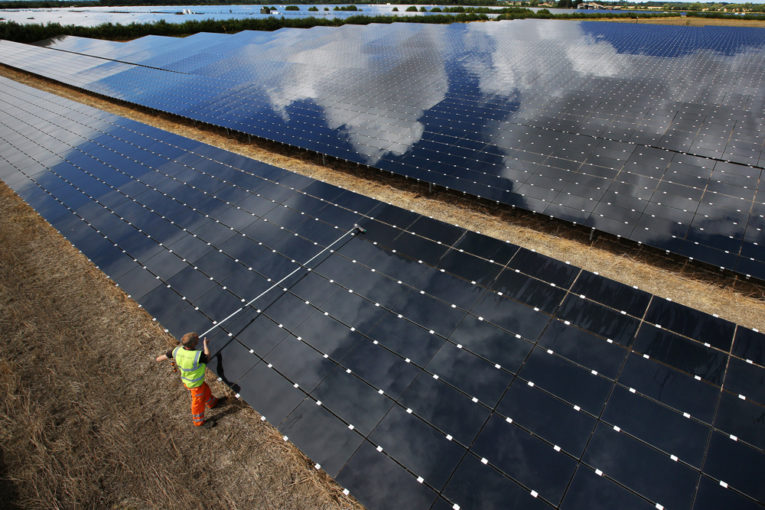
CALGARY — As falling costs for wind and solar energy threaten the dominance of oil and gas, oil and gas companies are increasingly getting into the renewables business, oil executives were told Wednesday.
Costs for solar power have fallen by 90 per cent while wind power costs have fallen by half, oil executives and major oil and gas investors attending an investment forum were told.
As costs for those alternative sources of power have fallen, renewable power producers are now able to sell electricity into certain markets — depending on factors such as transmission availability and weather — at a price that is competitive or in some cases lower than natural gas-fired generation. As a result, said Jackie Forrest, director of research for ARC Energy Research Institute, the oil and gas industry must adapt if it wants to continue to compete in the energy mix well into the future.
Energy experts at the forum pointed to recent moves by a handful of major natural gas producers to invest in renewable power sources.
“We’ve already seen huge billion-dollar plays by some of the oil majors to get into renewables – Shell has done that, Total, ENI, BP and many others,” said Morgan Bazilian, executive director of the Payne Institute at the Colorado School of Mines.
Bazilian expects new technologies will help integrate natural gas-fired power generation closely with renewable energy sources, so that in the near future, the business case would be stronger for gas companies to participate directly in the renewable power market.
“Every company in the gas space is looking at it – they’re not naïve about this,” he said.
At this point however, it’s unclear whether the smaller and mid-sized gas producers that dominate much of the Canadian sector will be able to make the same moves, given tight margins for natural gas production and large upfront capital investments in power generation.
“It’s hard to see the smaller players that don’t already have an interest in electricity,” said Grant Arnold, president and CEO of Calgary-based BluEarth Renewables Inc., adding he is seeing big investments in renewable energy from larger oil companies and funds with oil and gas holdings.
“We’re already seeing a lot of capital coming into the renewables space from pension companies and lifecos. A lot of them also have interests in gas companies or mid-stream companies or oil companies, but certainly the long-term trend has been the multi-national companies, the integrateds and the midstream companies having an interest in electricity,” Arnold said.
Arnold also noted that natural gas is used both to generate electricity and heats houses during the winter. He made it clear he expected renewables would only compete in the near term with natural gas for share of the electricity market, not the home heating market.
The event also focused on what steps oil and gas companies can take to lower their costs as competition with renewables, electric cars and others ramps up.
“Markets always bifurcate into those that adopt and those that don’t,” said Peter Tertzakian, Executive Director of ARC Energy Research. He predicted that Canadian oil and gas producers who don’t adopt new technologies would not be able to keep up with the competition.
Hamera Malik, CEO of Toronto-based Canvass Analytics, said so far few Canadian energy companies have made investments in either automation, advanced analytics or artificial intelligence to reduce costs. “Canadians, in general, we are slow to adopt,” he said.
This is just the second major conference in Calgary to bring together Calgary’s big oil and gas investors to contemplate the future of the energy business.
Last year, ARC Energy investing forum focused on the extent to which electric cars would upend the oil industry.
• Email:
You can read more of the news on source
